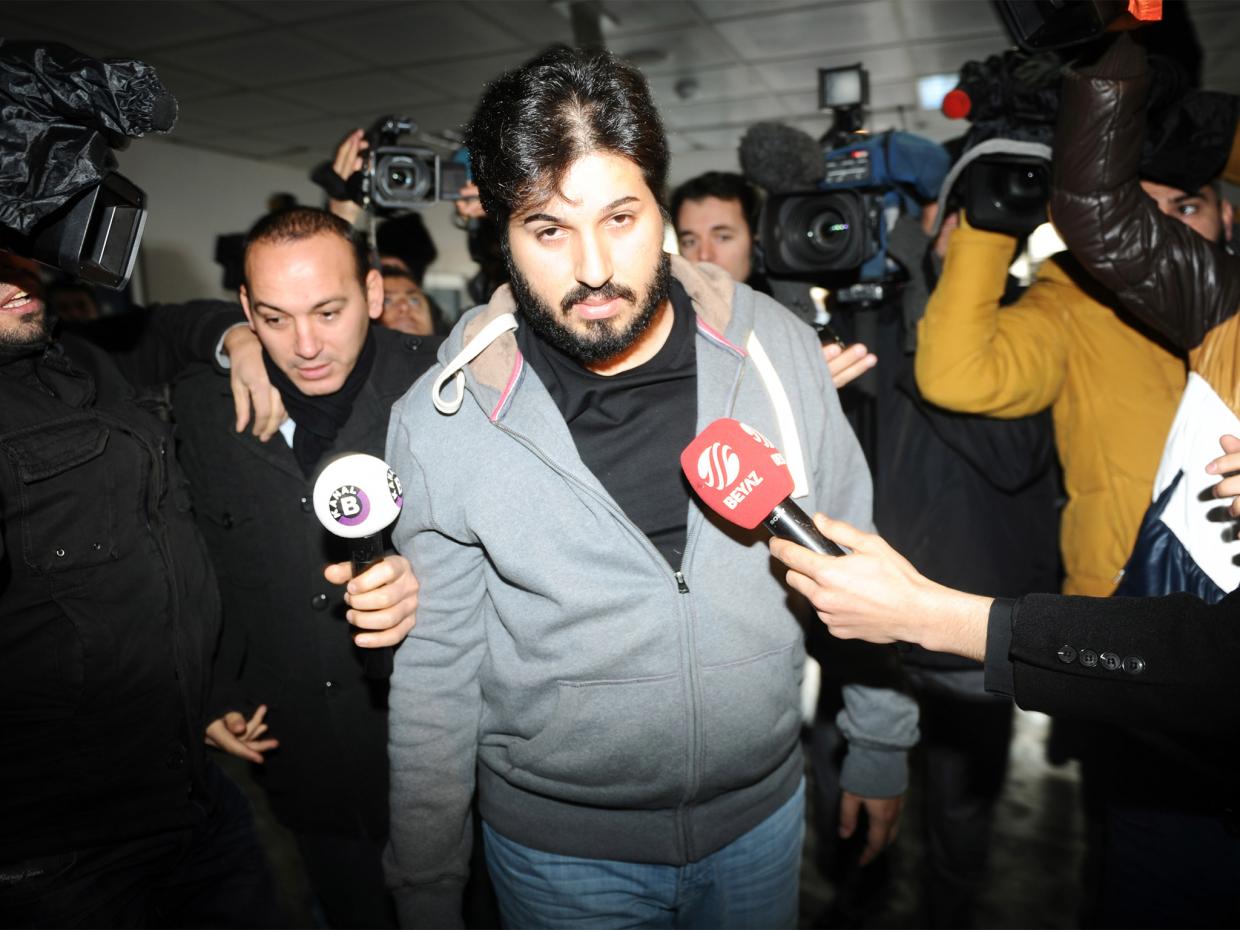Turkish-Iranian gold trader Reza Zarrab, who had close ties to the Erdogan family in Turkey, will not appear at the court as a defendant, as U.S. Judge Richard Berman told jury candidates on Monday at a jury selection session that Halkbank executive will be alone in the case.
The development sent rippling waves across Turkey, left officials shudder over the possibility that the Turkish-Iranian businessman who is charged with evading U.S.-sanctions against Iran might actually have struck a deal with the U.S. prosecutors.
On Monday, the judge briefed jury candidates that Mehmet Hakan Atilla, an executive of Halkbank, will be the only defendant in the case.
The trial has created a lasting discord between the U.S. and Turkey, with Ankara seeing political motivations in the case.
“He is the only defendant in this trial,” Mr. Berman said of the Halkbank executive who faces six counts of violating U.S. sanctions on Iran, bribery and money laundering.
U.S. prosecutors claim that the defendants use front companies and fake invoices to trick U.S. banks into processing transactions disguised to appear as though they involved food, which is exempt from sanctions, according to Reuters.
“Firstly, and most obviously, Erdoğan is concerned about what information Zarrab might provide and whom he might implicate is he cooperates with US prosecutors, as signs seem to indicate,” Lisel Hintz, Assistant Professor at John Hopkins University, told Turkey Post.
If Mr. Zarrab has indeed agreed to cooperate with U.S. prosecutors, he could potentially be called as a witness in the case, a potential embarrassment for the government of Turkish President Erdogan, which has railed against the trial.
Zarrab’s name appeared on a nine-page list of people who could be called to testify at Mr. Atilla’s trial. He was listed as “alleged co-conspirator.”
The Turkish leader repeatedly brought the issue to his talks with U.S. presidents, pressed for dismissal of the prosecution. Deputy Prime Minister Bekir Bozdag called on Washington to drop the case.
“It has no legal basis and it must be immediately dropped or ended.”
The target, Mr. Bozdag said, is Turkish economy amid the possibility of heavy fines by the U.S.
The bigger concern for Erdoğan, Ms. Hintz noted, is the stability of Turkey’s economy, which has been teetering for some time.
“Apparently, foreign investors don’t react the same way to corruption allegations as AKP supporters,” she said. “With the Turkish lira continuing to lose value, thus making paying off foreign debt increasingly difficult, and FDI pulling out, Erdoğan needs the economy to stabilize to continue to maintain electoral support ahead of the 2019 municipal, general, and presidential elections.”
Addressing the fears that now dogged the Turkish officials in Ankara, Ms. Hintz emphasized that the “massive fines on six of Turkey’s major banks that could result from a guilty verdict in U.S. courts could severely damage Turkey’s ratings in international banking and trading indices, not to mention undercut the construction industry, which relies heavily on bank loans and has fueled much of Turkey’s growth along with state-led investment.”
In late 2013, Turkey was rattled by a sprawling corruption investigation that ensnared Mr. Erdogan’s cabinet and his own family. A murky gold trade, worth of billions of dollars, money transactions that involve Turkey’s state-owned Halkbank and a businessman with a pop star wife were swept into the public spotlight, with ominous political ramifications for then-Prime Minister Erdogan’s government.
Politically savvy Erdogan somehow managed to weather the storm by thwarting any potential damage from the probe through an immediate purge of prosecutors and police chiefs involved in the case.
His boundless machinations, however, only are pertained to the borders of his country, with his reach overseas appears evidently limited. Mr. Zarrab found himself boxed in the U.S. when he set his foot in Disney World for a holiday.
What started as a family vacation soon morphed into a diplomatically sensitive legal drama that still playing out in New York City. F.B.I. agents detained the Turkish-Iranian gold mogul in March 2016.
President Erdogan’s initial reaction was muted, he preferred to be seen as unfazed at the time by distancing himself from Mr. Zarrab. His arrest has nothing to do with our nation, it is not our concern, he then said.
But soon later, he leapt into defense the businessman, calling the F.B.I. investigation as a plot against Turkey.
U.S. media reports have suggested in recent days that the trader Zarrab may be seeking a plea bargain and shown willingness to testify against Turkey.
The deputy Turkish prime minister claimed there was “pressure” on Zarrab to confess to “slanderous” claims.
U.S. media reports have also said that Trump’s former national security advisor Michael Flynn is being investigated for alleged talks with Turkey on deporting Zarrab and Gulen, in exchange for money.
Turkey and Gen. Flynn’s lawyers have denied any such negotiations.
Separately, Turkish authorities were preparing to issue Interpol red notices for three ex-prosecutors on the run who oversaw the 2013 corruption probe, state-run news agency Anadolu reported.
The allegations against Mr. Erdogan’s inner circle — which centered on the illicit trading of gold with Iran — posed one of the biggest threats to his rule.




Comments are closed.